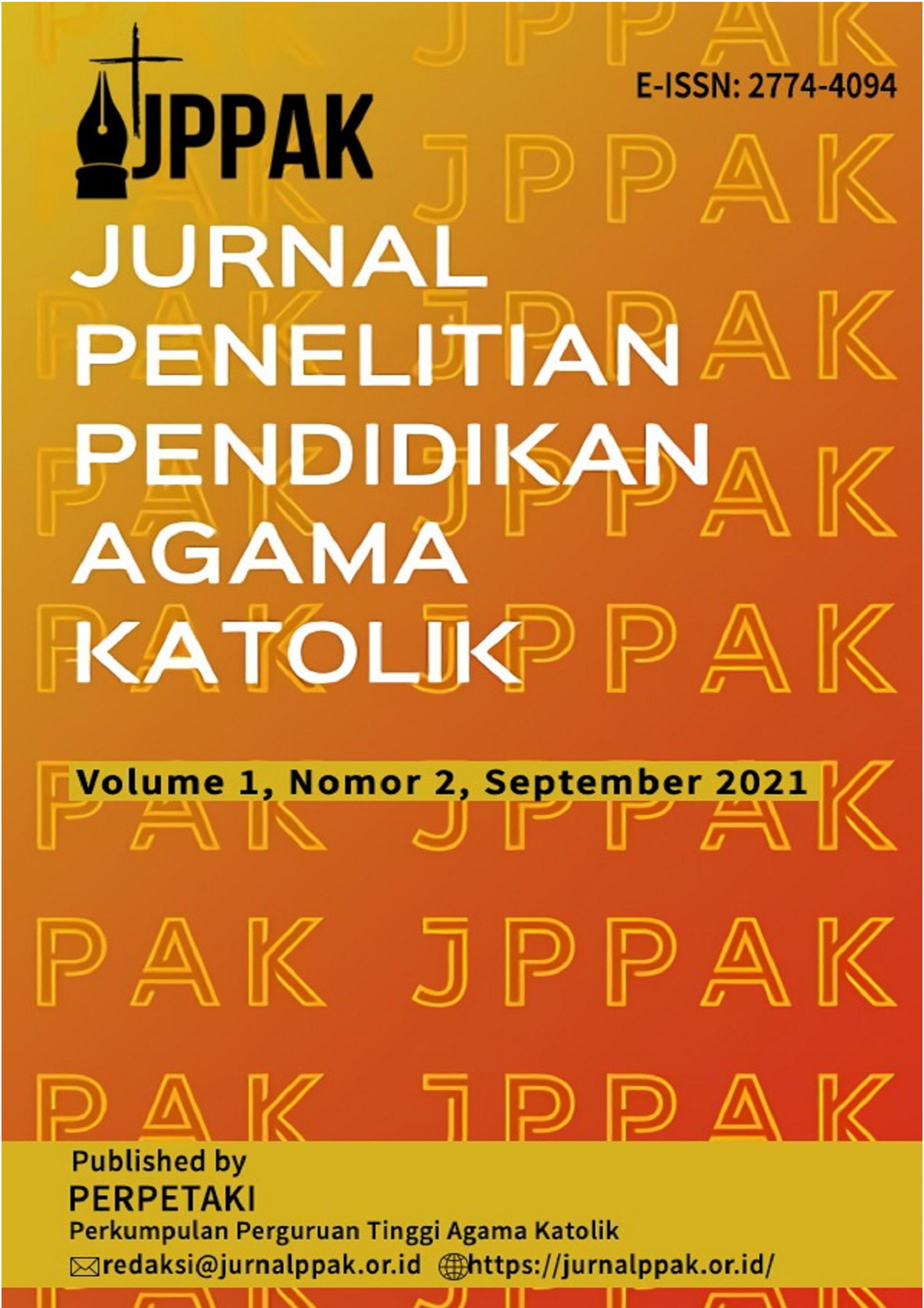Entrepreneurial Process in Efforts to Revitalize Culture and Industry in Kampung Batik Semarang: A Case Study for Entrepreneurship Education at STPKat Santo Fransiskus Asisi Semarang
DOI:
https://doi.org/10.52110/jppak.v2i2.63Keywords:
Entrepreneurship, Revitalization, Kampung BatikAbstract
The Indonesian government continues to struggle to overcome poverty, for example by distributing direct cash assistance to underprivileged families. These efforts are clearly not ideal. One of the initiatives that the government needs to continue to develop is to empower the small and medium enterprises (SMEs). One of the better examples of those empowerments is the revitalization of Kampung Batik Semarang. The goal of this research is to analyze the revitalization of Kampung Batik Semarang as an innovative, fruitful, and everlasting entrepreneurial process. The other goal is to provide a concrete and excellent case of entrepreneurial process for the students of STPKat Santo Fransiskus Semarang. The findings of the research: Kampung Batik Semarang is a model of a successful entrepreneurial process. The revitalizations of culture and industry are evident. New and everlasting working places were created. Everlasting, in sense that there is process of inheriting some unique motifs of the Batik.
Downloads
##submission.downloads##
Submitted
Accepted
Published
How to Cite
Issue
Section
License
Copyright (c) 2022 Andarweni Astuti, Gunawan

This work is licensed under a Creative Commons Attribution-ShareAlike 4.0 International License.
Copyright Notice and Permissions
Jurnal Penelitian Pendidikan Agama Katolik offers immediate open access to all its content on the principle to make researches freely available to the public, especially to the scholars, to support greater global exchanges of knowledge. This journal encourages all scholarly authors to allow their research openly available, free access and without time restrictions.
All articles published Open Access will be immediately and permanently free for everyone to read and download. Under the CC BY-SA 4.0 license, authors retain ownership of the copyright for their article, however authors grant others permission to use the content of publications in Jurnal Penelitian Pendidikan Agama Katolik (JPPAK) in whole or in part provided that the original work is properly cited. Users (redistributors) of Jurnal Penelitian Pendidikan Agama Katolik (JPPAK) are required to cite the original source by including at least: the full title of the article, the author's or authors' full name(s), JPPAK as the initial source of publication, year of publication and volume number using a propriate citing method.
Copyright encompasses exclusive rights to reproduce and deliver the article in all form and media, including reprints, photographs, microfilms and any other similar reproductions, as well as translations. The reproduction of any part of this journal, its storage in databases and its transmission by any form or media, such as electronic, electrostatic and mechanical copies, photocopies, recordings, magnetic media is prohibited without consent of Jurnal Penelitian Pendidikan Agama Katolik (JPPAK).
Jurnal Penelitian Pendidikan Agama Katolik (JPPAK) is licensed under a Creative Commons Attribution Share-Alike 4.0 International. (CC BY-SA 4.0)
Authors who publish with Jurnal Penelitian Pendidikan Agama Katolik (JPPAK) agree to the following terms:
- Authors retain copyright and grant the journal right of first publication with the work simultaneously licensed under a Creative Commons Attribution Share-Alike 4.0 International (CC BY-SA 4.0) license that allows others to share the work with an acknowledgement of the work's authorship and initial publication in this journal.
- Authors are able to enter into separate, additional contractual arrangements for the non-exclusive distribution of the journal's published version of the work (e.g., post it to an institutional repository or publish it in a book), with an acknowledgement of its initial publication in this journal.
- Authors are permitted and encouraged to post their work online (e.g., in institutional repositories or on their website) after the publication on JPPAK, as long as it not published on other OJS for it will be treated as plagiarism by plagiarism checker apps. It can lead to productive exchanges, as well as earlier and greater citation of published work (See The Effect of Open Access).












